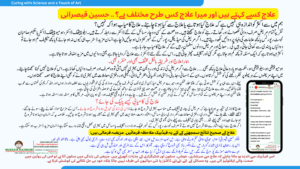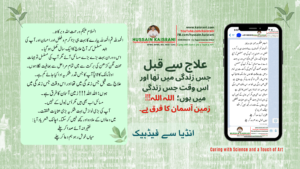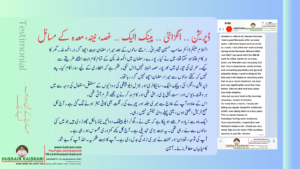Agaricus Muscarius
Amanita muscaria. Agaricus imperialis.
English: Bug agaric
French: Agaric moucheté, Champignon rouge
German: Fliegenschwamm, Fliegenpilz
Italian: Amanita
Russian: Moucho-more
N.O. Fungi; Class I. Thallogens
Vegetable family [Jussieu]: Cryptogamia
Preparation: Agaricus is collected in the hottest months and hung up by a string in the air to dry; some dry of themselves on the ground and are said to be far more narcotic than those artificially preserved. To render it proper for homeopathic usage, the stalk and the cap are cleaned, and after the epidermis is removed, it is cut into small pieces, on which an equal quantity of alcohol is poured. From the tincture thus prepared the alcoholic attenuations are produced.
The essential features
Agaricus is a remedy which is needed more often in our times than in the past since its psychological picture corresponds closely to many of the contemporary anxiety states encountered with increasing frequency today.
The psychological pathology of Agaricus typically manifests in dependent, weak-willed individuals. These persons have from an early age established a pattern of seeking the guidance and domination of a stronger person. This desired dependence originates from an inability or a refusal to act with initiative or to accept responsibility. It is as if there is a paresis of the will and of the power to think; these patients cannot summon enough will power to confront life situations. Instead they will attempt, by lavishing great love and devotion upon their mentor or protector, to seduce this stronger person into making and accepting responsibility for the difficult decisions in their lives. A man, for instance, may depend upon and obey with almost complete fealty his mother and, later in life, his girlfriend or wife. He is a weak willed individual who asks everybody for advice: “what shall I do?”
It is also frequently observed in these cases that angry emotions against others are readily repressed because of a fear of the consequences of showing “muscle.” Agaricus persons may display considerable aggressiveness after they have been treated correctly with the remedy. It seems as if all those years during which they were under the influence of Agaricus and did not have the power or the will to express anger, the suppressed anger lay dormant and deeply hidden within the subconscious mind. It is really amazing to see how much ridicule these persons can take from their parents, wives, superiors, teachers, etc. without being able to voice objection or anger. Their sweet, suppressed, non-aggressive manner bears resemblance to that of Staphysagria and Baryta Carbonica. In fact, the practitioner will sometimes find himself thinking about such a patient, “What a nice man!”
Instead of showing their anger, the muscles of their face twitch; they can also develop choreic movements and involuntary muscle spasms. Anxiety about their health, constipation, hay fever, as well as other symptomatology can also result.
Many times, in their weakness, they will seek out a scapegoat whom they can blame for any future difficulties they may encounter. They constantly seek to avoid responsibility. They are pampered people, living lives as sheltered and comfortable as their social environment will allow. Nonetheless, the side effects of their abrogation of responsibility always catch up with them on some level or another. Though the impact of life’s many stresses may not penetrate their psyche, it more than likely will be felt on the level of the peripheral or central nervous system.
Despite leading sheltered lives, the impact of stress is unavoidable. At some point these people are confronted with a death, either of someone in their immediate environment or of a family member, but they are unprepared to face such an event and may, as a consequence, become overwhelmed by the fear that a similar tragedy may befall themselves. They are especially sensitive to premature, sudden death and death from cancer. The idea of death and decay intrudes upon their convenient, easy life. Eventually they become preoccupied with thoughts of death and disease, with morbid ideas. They lack the will power to push such thoughts from their mind. It is as if the mind has become “anemic.”
Agaricus patients are frequently troubled by an extreme anxiety about their health or, at other times, by a preoccupation with the diseases of those around them. The Agaricus anxiety about health is centered around a tremendous fear of cancer. They will go through sleepless nights thinking about the possibility of having cancer. The intensity of this fear can lead to the mistaken prescription of such remedies as Nitric acid, Arsenicum Album, Phosphorus or Kali Arsenicosum with little or no amelioration. The fear is so overwhelming that they feel that it may drive them mad. There is hardly any moment during the day or night that they do not think about this possibility. This extreme anxiety is usually triggered by very mild pains and will provoke the patients to complain in a very exaggerated fashion. They may have so trivial a complaint that the physician has difficulty understanding why they are making such a fuss about it. What is even more amazing is the fact that one may see Agaricus patients with a knowledge of medicine equivalent to that of a medical doctor who, despite their knowledge, will persistently pester the practitioner with anxious inquiries as to whether or not their symptoms suggest cancer. The symptom that they have may be so trivial that another person would not be bothered at all.
They complain with such unbelievable intensity that the physician is certain to comprehend how serious they believe their problem to be. They have already arrived at the conclusion, which they may or may not express, that their symptoms are the result of some form of cancer. Consequently, one may see a patient with but a mild case of lumbago, for example, who will sob pitifully, “You can’t know how much I’m suffering. Why am I in pain? Why does my back hurt? Why can’t any doctor find out what’s causing it? I just don’t want to live any longer!” During the interview, they may cry and cry due to the anxiety they feel. Their fear of cancer causes them to weep even with the smallest amount of pain. These performances readily evoke the image of a “cry baby;” they are amazing displays designed to convey the patients’ certainty that their disease is serious as well as to make the physician feel responsible for them. These patients are not demanding of relief in the manner of Kali Arsenicosum, Nitric Acid, and Arsenicum Album, rather they will tend to sob self-pityingly, often unable to voice their fear that they have cancer, but with an agony which is explicitly depicted in their face. At home Agaricus patients can make everyone’s life miserable because of their constant worrying, complaining and moaning. Often almost everyone in the immediate neighborhood is aware of an Agaricus patient’s suffering, so vocal is the complaining. One Agaricus woman put it succinctly, “I feel my husband has had enough of me; I have made his life and the life of my children miserable by my constant complaining.”
Perhaps a patient has only a small hemorrhoid that has produced some bleeding two or three times. Suddenly an overwhelming fear that he has cancer of the rectum seizes the patient. The doctor examines and reassures the patient, advising him that he has only a simple hemorrhoid and recommending frequent sitz baths.
However, as soon as there is a recurrence of the bleeding, he is unable to resist his fear. “Now I am lost. There’s no hope; surely this is cancer!” he thinks. He is overwhelmed by a tremendous fear of cancer. It is strange that the fear centers almost exclusively around cancer unlike other remedies which may fear a variety of diseases (Ars., Kali ars., Nit-ac.).
Another patient, a woman, will excessively complain of a pain in her breast. She presses the breast repeatedly, and it is evident that she cannot stop touching it or thinking about it. She touches and checks it for lumps so often that she irritates the tissue and creates actual pain in the area. She may have been examined by another physician, but despite the fact that all tests and perhaps even biopsies were normal, she remains fearful. The idea that she could develop cancer remains implanted in her mind. During the course of interacting with such a patient, the practitioner will sense a prevailing selfishness; she will give the impression that she cares only about herself and constantly thinks only of her own condition
At other times these patients may be obsessed with the sufferings of people around them. They seem to collect information on all varieties of accidents and tragedies, especially cases of cancer. Thus, during the interview these patients will give endless accounts of such cases: “I have a friend who was in a car wreck and had to have both legs amputated… There’s a boy in our neighborhood who was just diagnosed as having cancer of the colon … My friend’s girlfriend, who is only thirty, is dying from cancer of the uterus …. etc.” It is difficult to determine how these patients could possibly know so many people with such horrible conditions, and, in fact, the “friendships” to which they allude in this context may have no substance beyond the patients’ preoccupation with the “friend’s” disease. After listening to these people for a while, one is struck by the fact that they speak of nothing but tragedies. Agaricus patients seem to be preoccupied with these horrible events.
They pay such inordinate attention to these tragedies because, most probably, they fear subconsciously that a similar tragedy might befall them as well.
However, unlike other remedy types who also have anxiety about their health, Agaricus patients, despite their fear, do not have an aversion to visiting or even helping patients who are dying or very ill with severe disfiguring or horrifying conditions. Quite the contrary, Agaricus patients seem to be able to cope with horrible diseases and will even go to the home of a suffering person to help with his care. They display a peculiar sort of courage in such situations. Their fear is of “cancer” — its “finality,” not other diseases. They may visit an elderly dying person who has been abandoned by everyone else in a dirty disgusting enviroment or situation. They do not shirk such activities as bathing patients with foul ulcerations, changing soiled sheets, emptying bedpans, etc. Admittedly there is an idealistic element to such work, a desire to help and also an element of courage; however, there may be an ulterior motive involved. Agaricus patients may feel a certain desire to do “good deeds” as a means of achieving a form of insurance, so to speak, for the afterlife. The effort put forth in performing good deeds may be intended to counteract a vague superstitious fear of hell, a fear some of these patients may have.
During the interview they may describe in a rather whining and disgusted tone these nursing experiences in elaborate detail. Though they feel disgust, their disgust does not hamper their almost infallible instinct for seeking out the most desperate terminal cancer patients; such cases seem to stimulate their anxieties and become the central focus of their thoughts. As soon as one case fades from their mind another case appears.
This preoccupation with death and disease has another facet, namely an absorption in morbid thoughts. The Agaricus mind easily turns to such topics as death, ghosts, tombs and graveyards. One may encounter a woman who has a “spooky” quality about her. While on vacation she may, upon seeing her hotel bed, become disturbed; something about the lighting or the bed’s position upsets her. “The bed looks like a tomb,” she states. Perhaps she may speak of ghosts or evil spirits as if they were familiar to her. At times the morbid quality can be expressed more subtly. For example, a patient who has been told that she has sinusitis with pus in the sinus may let her imagination lead her into thinking that she has something rotten in her sinus that is decomposing and stinking.
Another aspect of this spookiness is that these patients possess a striking tendency for “out-of-the-body” experiences. In contradistinction to other remedies which also have this tendency and develop a tremendous fear of dying during the experience, Agaricus patients may actually enjoy these conditions and even try to provoke them. (Cannabis Indica can also enjoy their out-of-the-body experiences, but most of the time they are tremendously afraid either of death or of becoming insane.) In fact, they often find that their general psychological state is ameliorated after out-of-the-body experiences. To this group of symptoms belongs easy, hysterical fainting, which can occur after orgasm, especially in young hysterical women.
There are periods when the Agaricus anxiety can subside and an extreme euphoria and cheerfulness can take its place. This euphoria can be a very powerful experience which the patients themselves recognize to be abnormal. They feel abnormally strong with a sense they can do anything. At times these ecstatic moments may be alluded to as being indicative of spiritual attainment. Even during these episodes, the feeling that something is wrong persists, and eventually the anxiety returns. Alternating states of cheerfulness and depression are also seen.
On another level, an advanced mental derangement can occur which is characterized by an excessive loquacity. In such a case the patient, engrossed in his own world, talks constantly; his jabbering is incoherent and spontaneous. There is no contact with the practitioner, and if asked questions, he will not answer, yet he will keep on talking, changing from one subject to another. His is a state of silly hilarity; he sings and laughs without reason. He embraces people and kisses their hands in a ridiculous manner. He sings or whistles quite inappropriately while in this gay state; in his elation, he creates verses and makes prophesies. In general his manner of expression is peculiar in the sense that he seems to be overstating his point, overstretching it, or overstepping the bounds of reason. A crazy fearlessness prevails at times where danger is not perceived or recognized, resulting in a feeling of extreme mental and physical power.
People who have eaten Agaricus mushrooms can also have strange experiences which remind one of a hallucinogenic drug. Here are some examples from old literature:” Imagines himself at the gate of hell and that the mushroom tells him to fall on his knees and confess his sins, which he does. Phantasy that he saw his dead sister in heaven. Calling for his hatchet alternately with religious excitement. Takes long steps and jumps over small objects as if over trunks of trees. A small hole seems like a frightful chasm and a spoonful of water an immense lake.”
In fever states we observe either a state of raging delirium or mental sluggishness. The delirium is full of fury and mania, a frenzy that causes the patient to try to injure himself — he may want to rip out his bowels, for instance, he throws his medicine to his nurse. When mentally sluggish, the patient can reach a state in which he looks almost stupid and is indifferent to his surroundings. From this state he can easily proceed into a gay, loquacious delirium. His whole condition suggests a state of inebriation and therefore this remedy has been prescribed with success in delirium tremens.
These unusual characteristics complete the peculiar nexus of symptomatology that characterizes many Agaricus patients. An interesting observation is that the typical anxious and depressed psychological state of Agaricus may at certain moments disappear; this alteration occurs when some aspect of physical pathology becomes accentuated. For instance, when the pain of lumbago becomes especially pronounced, the pre-existing fear of cancer is minimized. This alternation of physical and mental symptoms is similar to that seen in Platina and Cimicifuga. (In Cimicifuga one may see lumbago or sciatica alternate with depression.) The disease appears to temporarily move more peripherally as the physical pain intensifies and the internal psychological state becomes calmer.
The agaricus child
Agaricus children are slow in walking, talking and learning. Their mind seems to develop slowly, which is why they make mistakes in speaking and writing later. They have a bad memory. They are also slow in comprehending and have difficulty in making decisions. They feel weak and are very attached to and dependent upon their parents.
This is the reason why they may develop chorea or convulsions if they have been badly offended or reprimanded by their parents or teachers.
These children are clumsy, awkward, timid and look a bit backwards. They are prone to redness of the nose and to chilblains in the ears with occasional twitchings of the face. There is a tendency to convulsions. In meningitis these children roll their head and bite themselves or otherwise try to hurt themselves.
- Tyler describes the child with chorea in a picturesque way: “The child gets scolded for making faces; then it gets smacked for dropping and breaking cups and saucers; then at last it dawns on the most unobservant that it is no case of original sin but St. Vitus Dance…”
Another aspect of Agaricus children is described by J. Metzer in his Materia Medica: “Nervous excessive liveliness of children with mental and motoric restlessness, they laugh, sing, dance and run about in a boisterous manner… With their great restlessness and fidgety nature these children become a real trial for their parent’s patience. When playing they are wild, boisterous and incredibly agile; inspite of the talent they possess, they are poor achievers at school due to their flightiness. These children have no perseverance due to their mental and physical restlessness, they slip from one thing to the next and and show no concentration whatsoever. Because of their fidgeting they are clumsy with their hands and drop things. When lying in bed they move their bottom rythmically or roll their head. In the treatment of chorea I always found Agaricus the most reliable remedy. Agaricus children are frequently subject to bed-wetting, particularly after lively play or excitement…”
Generalities
Here again the aggravation of Agaricus, in the form of general debility and symptoms of the nervous system, after coition and sexual excesses should be stressed. Aggravation from cold. Red patches result from exposure to cold, most notably on the face and hands; this happens even though the extremities that are covered may sweat profusely.
Symptoms appear diagonally.
Convulsions after coition and excitement, after fright, from suppressed eruptions, and from suppressed milk in nursing women. Epileptiform convulsions in hysterical women with frothing at the mouth and an aura consisting of the sensation of cold air spreading over the whole body or the spine.
Aggravation from motion, especially beginning motion, pressure, even touch.
Chorea that establishes its full severity slowly over the years. First seen is the twitching, the clumsy dropping of things, and/or the stumbling; later the jerky
movements of the face or grimacing occur; and finally the full manifestation of chorea presents itself. It may take several years for this progression to complete itself. The choreic movements may occur with such violence that they literally throw the patient off the bed.
Worse in the morning: he feels heavy, sluggish, stupid, dissatisfied; he complains a lot, moans about different things. In the evening he feels livelier, brighter and more able to work.
Head
Pains in the head as if cold needles were piercing it or as if sharp pieces of ice were touching it. Coldness of head, especially after scratching, is a keynote for Agaricus. Coldness of forehead though the forehead feels hot to the touch.
Headaches coupled with twitchings or spasms in different parts of the body, most specifically the face. Icy coldness of the whole scalp or of certain localities (vertex) (Calcarea phosphorica, Veratrum album). Headache after excessive masturbation, coition (Calcarea carbonica, Sepia, Silica), alcohol (Lachesis, Nux vomica, Ranunculus bulbosus). Pain on the right side of head as from a nail, worse sitting quietly, better walking about.
Convulsive motion of the head as from chorea. A feeling as if the head is enlarged.
Vertigo while walking in the open air (Pulsatilla, Sulphur). Vertigo from exposure to sun and heat, with a tendency to fall backwards (Rhus toxicodendron).
Eyes
Convulsive involuntary movements of the eyes; the movements are pendulum-like, from side to side. This symptom is a great keynote of Agaricus.
The eyelids tremble, quiver (belladonna, Calcarea carbonica, Cicuta) or twitch (Physostigma, Rheum, Sulphur); if this happens before a thunderstorm, it becomes a strong keynote. The twitching is better during sleep.
Redness of canthi (Argentum nitricum, Sulphur).
Delusions of colors and figures in front of the eyes.
Ears
Chillblains are often noted in the ears, a key characteristic of this remedy, especially if these chillblains come during menses. There is redness in areas comprised of cartilaginous tissue; e.g., the ears and tip of the nose. The ears feel frozen, as if frostbitten (Petroleum, Pulsatilla).
External and internal itching in the ears; extreme itching which feels like burning (Arsenicum, Bryonia, Petroleum). Burning pain in ears during menses.
Nose
Tip of nose red. The nose is red with a bluish discoloration, as if frostbitten. Pain in the nose, especially the root of the nose, during headache is a keynote. It is the leading remedy indicated when prolonged coughing ends in sneezing. Paroxysmal sneezing. Chronic catarrh with dryness and crusts.
Intense itching in nose and ears as in hay fever. Epistaxis, especially in old people (Secale).
Face
The expression of the face is idiotic, stupid. The face takes on a stupid, puzzled expression if they were asked a question that they do not understand.
A lot of twitchings are seen, especially of the left side of the face. A few muscle fibers quiver quite frequently and change place quickly, driving the patient crazy.
Even more characteristic, however, are the involuntary grimaces where several bundles of facial muscles participate in creating jerking movements.
There is repetitive blinking of the eyes or stretching of the mouth to the left and right in a jerking motion.
It appears as though a facial twitch or jerk occurs with every stressful thought the individual experiences, a kind of spasmodic conversion that leaves him psychologically unaffected. All of this activity of the muscles and fibers subsides completely during sleep.
Trigeminal neuralgia of the right side of the face where the pain feels like cold needles piercing the nerves; pains as if frostbitten. The feeling that the painful part is affected by frost; the pain felt is similar to that of frostbite: this is actually a more general characteristic of Agaricus. At times, there is stiffness of the facial muscles during headache.
Mouth
Trembling and severe quivering of the tongue that affects speech. Thus, speech becomes jerky. This is especially seen in chorea. At times articulation of words is difficult. Offensive breath, like horseradish. Teeth feel very long and sensitive to touch.
Stomach
Excessive thirst and appetite that feels unnatural. No appetite at all after coition. Empty eructations alternating with hiccough. Eructations tasting like apples or rotten eggs.
Gnawing in stomach as if from hunger without desire to eat. A feeling of a lump in epigastrium.
Aversion to bread, meat and wine. Agaricus can have a desire for eggs (as opposed to Nitric acid, a remedy which can appear very similar to Agaricus, which has an aversion to eggs) and a strong desire for salt and salty things. Worse with cold food and cold drinks.
Abdomen
Distension of abdomen, especially in the morning after breakfast. Around this time, before and after breakfast, there is a general aggravation with flatulence and gurgling.
It affects the liver and the spleen, and it is especially curative for the pain in those organs that frequently troubles those who jog. Agaricus is indicated in liver affections such as hepatitis when associated with quivering or twitchings of the abdominal muscles, especially in the evening in bed, together with distension, rumbling and flatulence around breakfast time.
A feeling of tension in the inguinal region which is ameliorated by walking.
Rumbling after stool (Jatropha), worse from pressure. Pain in the umbilicus in the morning on waking.
Diarrhea after rising in the morning and after eating, with much flatus. Strong tenesmus before, during and after stool. Sometimes severe constipation which may resemble that of Alumina, with a lot of straining without result. Rectum feels unable to expel contents. Constipation during pregnancy.
Urinary organs
Urine feels cold on passing.
Milky urine in the afternoon.
Urinary urgency — a feeling that she must run to the toilet or she will lose urine.
Much painful urging; dysuria with a painful coldness and twitching along the left leg. Urine is scanty in hysterical women.
Genitalia
Sexually Agaricus is rather overactive, intense, easily excitable, and enjoys sex to a great degree. As a result of this overexcitation trembling and ultimately fainting may occur in women after coition. Agaricus is known for having a general aggravation of its symptoms after coition. The symptoms which are most aggravated are those belonging to the peripheral nervous system. The mental symptoms of extreme anxiety and fear, however, are actually ameliorated for sometime after sexual intercourse.
Sometimes the anxiety state can be so great that Agaricus women will have no interest in having intercourse, or, if they force themselves to have intercourse, they will feel depressed afterwards.
Quite a lot of masturbation, with a heavy reliance on pornographic magazines or films to stimulate sexual excitement, may be seen in both sexes. This desire is very strong in Agaricus and is in keeping with the general character of the remedy — the search for easy pleasure without much responsibility. These patients, despite the fact that they may feel rotten after coition on a physical or mental level, are not much bothered by masturbation. The women are many times driven to masturbation by a voluptuous itching of the clitoris.
The Agaricus leucorrhea is copious, dark, bloody and acrid.
The male genitalia are cold, the testes retracted and painful.
Chest
Agaricus is a strong tubercular remedy and can follow and complement Tuberculinum. In bronchitis or pneumonia there is convulsive cough with anxious, profuse night sweats or paroxysmal coughing ending in sneezing. The coughing and sneezing occur with such intensity and rapidity that the patient does not know whether he is coughing or sneezing.
There are not many peculiar symptoms with regard to the respiratory system; the decision to give the remedy should be determined from the generals and mentals. Suffocation; a feeling of tightness; chest feels too narrow.
Oppression of the cardiac region.
Expectoration in the shape of balls.
Palpitation with redness of the face. Palpitations are worse in the evening and after stool.
Severe pain and anxiety in heart cases; the patient’s countenance is changed as a consequence, but he will not admit his pain and anxiety when questioned, or, at the least, he will take a long time before he decides to do so.
Disappearance of milk in nursing women with the subsequent appearance of nervous system (central or peripheral) disorders. General symptom metastasis after the disappearance of milk (i.e.; new symptoms erupt elsewhere in the organism).
Back
In the back the usual characteristic of coldness appears in different areas; the back feels very cold, as if water were poured on different areas, especially between and beneath the scapulae. Coldness descending down and through the back.
The back is a sensitive area for Agaricus and touching it, especially between the scapulae and cervical region, is aggravating. Formication of the spine (Aconite).
In Agaricus we meet a lot of lumbago and sciatica cases where the main characteristics are: worse from motion in general, but especially when rising from a sitting position, and, more specifically, when trying to raise the thigh while sitting; better lying down, especially when the pain is located in the sacral region.
The pains are so severe that the patient has to lie down and finds it almost impossible to raise himself from the bed; the back feels tremendously stiff and painful.
One of the worst positions for Agaricus is sitting, especially for the sacrum. A feeling of tension in the back made worse by standing, stretching and touch.
Twitchings of the back, worse in the evening.
Extremities
As a general remark, we can say that Agaricus has difficulty in coordinating the movements of the extremities. He may overstretch his legs, reaching too far or too high with irregular angular motions, when ascending or descending stairs; he is clumsy and awkward when handling things; he stumbles when walking. His fingers may fly open spasmodically for no apparent reason, causing him to drop whatever he is holding. (Women that easily break all their breakable utensils will primarily need either Apis, Natrum Muriaticum, Bovista, or Agaricus.) All of the above is characteristic of the spasmodic and paralytic nature of the remedy. Paralytic weakness of the lower limbs during pregnancy.
Trembling and twitchings in different parts of the extremities; twitchings in the nates is a keynote. Jerking of muscles on falling asleep, especially of the toes.
Another characteristic that has to be stressed is the sensation of coldness, especially the sensation of coldness in spots; if such a cold spot is felt in the elbow, it is especially characteristic of Agaricus.
Chilblains in feet, toes and hands.
Symptoms of frostbite: skin looks bluish-red in spots.
Eruptions like pimples (miliary) on the back of the hand.
Burning and itching of the extremities, especially after coition.
Sleep
Ineffectual, frequent yawning followed by nervous laughter.
Starting on falling asleep; twitching all over that keeps him awake.
Skin
Burning and itching are most characteristic of Agaricus skin eruptions, together with coldness in spots and the sensation as if frostbitten. Easy ecchymosis.
Angioneurotic edema with burning, itching and redness.
Causation
Agaricus is sensitive to – and its symptomatology can be triggered by – the following:
Depletion of energy as a consequence of sexual excessess, masturbation, coitus, etc. Fear originating from death of loved ones, grief, vexation.
Overexcitement and overexertion.
Alcoholism. Frost. Sun. Fright. Mental application or excitement. Blood poisoning.
Clinical
The nosological entities which may require Agaricus include neurological disorders characterized by twitching, jerking and trembling (fasciculation, myoclonus, tremor and convulsions); such as, multiple sclerosis, convulsive disorders, epileptiform convulsions, amyotrophic lateral sclerosis, chorea, facial paralyses (such as Bell’s palsy, in which there is accompanying twitching), etc .. However, in our times, Agaricus is most frequently indicated for either such physical complaints as hay fever, lumbago and sciatica or such psychological conditions as the intense phobic or anxiety neuroses described above. A more complete listing follows:
Chronic conditions: Anxiety and phobic states, chorea, chorea in children, convulsions, epilepsy, hay fever, delirium tremens, paralysis, sciatica, spastic colitis, rheumatic affections, nystagmus, cramp. general paralysis, tremors, blepharospasm, lumbago. neuralgia, rheumatism, pains in sacrum.
Relationships:
It follows well: belladonna, Calcarea carbonica, Mercurius, Opium, Pulsatilla, Rhus toxicodendron, Silicea, Tuberculinum.
It is followed well by: Tuberculinum, Tarentula hispanica, Calcarea carbonica
Antidotes: It is antidoted by: charcoal, coffee, wine, brandy, camphor, fat or oil, and the remedies: Calcarea carbonica, Pulsatilla, Rhus toxicodendron, Vinum.
Dosage: For anxiety states the very high potencies have proved of service and yield good results. The remedy can be used from the lower (12C) to the highest potencies.





